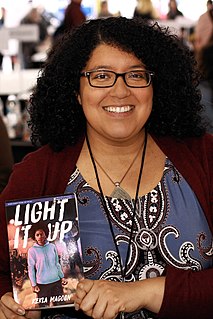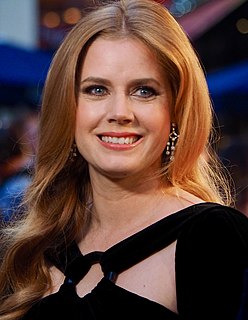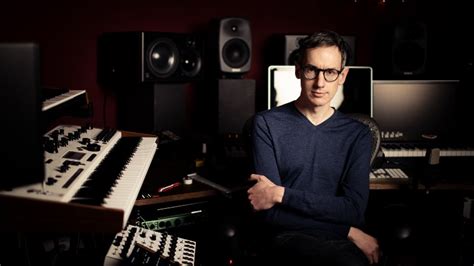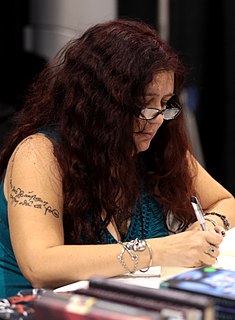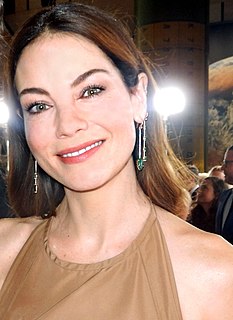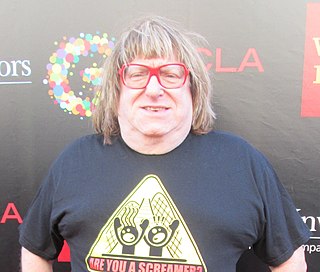A Quote by Kekla Magoon
We need heroes of color in all different genres. It's also valuable for white readers to be able to meet people in books that are different than themselves. That can be a way of expanding their minds and experiences.
Related Quotes
It's really interesting to just look at the career of a musician and a producer that went into many different genres and many different styles and many different places but always breaking the barriers between genres and at some point reinventing himself all along the way but also inventing things at the same time.
By looking upon themselves as human beings, their whiteness to them isn't the yardstick of perfection or honor or anything else. And, therefore, this creates within them an attitude that is different from the attitude of the white that you meet here in America, and it was in Mecca that I realized that white is actually an attitude more so than it's a color.
I've been able to have broad kind of education and all sorts of different music and a lot of kind of films and also different styles and genres. And so, all of these things have influenced me along the way and I take a little bit from everything I do. I've been lucky to work with a lot of great people and learn from them.
My experience may be different than theirs, readers can identify with trying to save for retirement or their own kid's college fund. In truth, the name of the column, "The Color of Money," has less to do with my race than the fact that the color of money is green and it's green we all need to live a good life.
I was one of the only people of color at my grade school and also my high school. It's weird recollecting on my childhood, I think, because my brothers are all white. We all share the same father but different mothers. I guess I kind of associated white, but I was occasionally reminded in a really negative way that I wasn't.
We all become different readers in how we respond to books, why we need them, what we take from them. We become different in the questions that arise as we read, in the answers that we find, in the degree of satisfaction or unease we feel with those answers...In the hands of a different reader, the same story can be a different story.
For me, something that's been always really important to me, that's also really served me well in hindsight, is doing different things, trying to cross different genres, and dipping my toes into comedy and drama and action here and there. Fortunately, as I've been working, the industry has also changed where you're able to dip your toes into different mediums, where it's not just independent film and studio film, but now you've got TV, and you're able to do all these different things. For me, it's just a matter of continually pushing myself and challenging myself.
You know, you have to do homework. You listen to who they are, what they do. I also compare it to designing clothes for people. If somebody brings in Tilda Swinton, you're not going to give her the same dress you'd give Gabourey Sidibe. Everybody looks different in a different line, a different color. The same thing with the way people speak.
